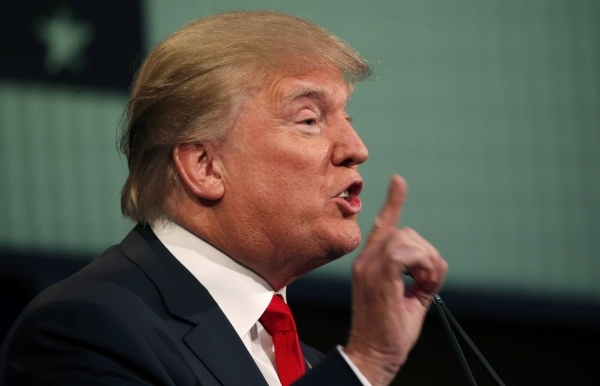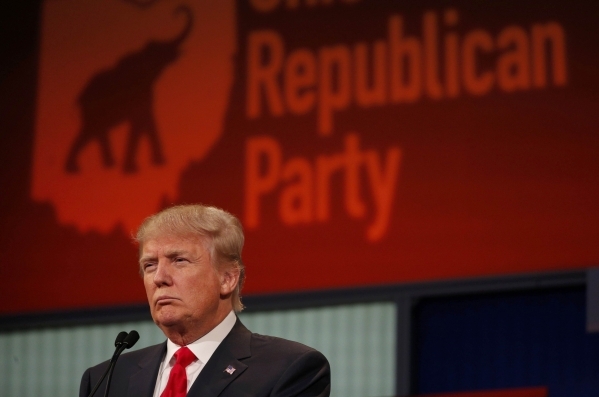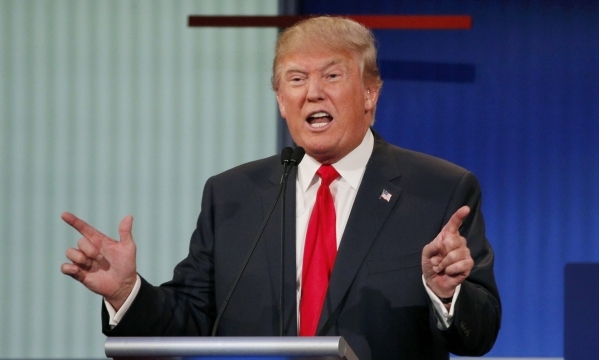Candidates with gaming knowledge dot the presidential field
After billionaire Donald Trump trashed Atlantic City during the nationally televised Republican presidential candidates' debate, Geoff Freeman had to be smiling to himself.
Not because of what Trump said. Rather, it was the setting in which the former casino owner, New York real estate developer and GOP presidential candidate uttered those remarks. The Fox News-sponsored debate took place a few blocks from the Horseshoe Casino Cleveland.
Freeman, CEO of the Washington D.C.-based American Gaming Association, launched Gaming Votes earlier this year. The grass-roots initiative aims to ensure 2016 presidential candidates don't forget that gaming is an economic engine in many local communities. The AGA often mentions last year's economic impact report, which found the gaming industry represents $240 billion annually in economic impact and supports 1.7 million jobs in 40 states.
"We want to take gaming beyond being its long-considered view as a necessary evil and show that it's an extraordinary asset in these communities," Freeman said. In June, he sent letters to more than a dozen of the announced candidates, outlining why they should have an appreciation for gaming.
He knows gaming is not going to rise to the top of campaign issue charts, but that isn't the reason for the initiative.
Gaming jobs are touched by the candidates' position on core topics, such as immigration reform and health care.
"Gaming is a maturing industry, and we have an obligation to inform our employees on how these candidates stand on certain issues," Freeman said.
For the first time, several presidential wannabees have hands-on knowledge of the casino industry because they come from states filled with resorts owned by Las Vegas-based gaming companies.
On the Republican side, Govs. Chris Christie of New Jersey, Bobby Jindal of Louisiana, John Kasich of Ohio oversee three of the largest casino states. Wisconsin Gov. Scott Walker's state doesn't have commercial casinos but ranks 10th in the nation in Indian gaming revenue.
Former Maryland Gov. Martin O'Malley, a Democrat, was in office during his state's rapid gaming expansion. A 2014 Washington Post article, however, said O'Malley had "ambivalence" toward legalized casinos.
The crowded Republican presidential field includes candidates viewed as anti-gaming.
Former New York Gov. George Pataki was a co-chairman of the Coalition to Stop Internet Gambling, the grass-roots organization financed by Las Vegas Sands Corp. Chairman — and GOP mega-donor — Sheldon Adelson. An Adelson-backed Senate bill seeking a ban on Internet gaming was sponsored by Sens. Lindsey Graham of South Carolina and Marco Rubio of Florida.
Former Florida Gov. Jeb Bush and Rubio support an organization that opposes casino expansion in the Sunshine State.
Then there's Trump.
In the 1980s and 1990s, Trump was Atlantic City's largest casino owner with three resorts. At one point, he and casino rival Steve Wynn got into a legal skirmish over the services of the late gaming executive Dennis Gomes.
Trump is no longer involved in the gaming industry. Trump Entertainment Resorts was formed after his casinos emerged from the second of three bankruptcies. The business is controlled by financier Carl Icahn, but Trump retains a 10 percent stake and leases the rights to his name.
Trump Marina is now the Landry's-owned Golden Nugget Atlantic City. Trump Plaza closed a year ago and probably will be demolished. The Trump Taj Mahal, still operated by Trump Entertainment, has financial and image issues.
"I had the good sense to leave Atlantic City," Trump said at the debate.
Trump flirted with building or buying a casino in Las Vegas as far back as the late 1980s. In February 2004, he was licensed by Nevada gaming regulators after buying 10 percent of the Riviera. But he never found other deals or expanded his stake. Trump sold the Riviera stock nine months later. In 2008, he opened the $1.2 billion Trump International, a nongaming hotel and condominium tower behind the former New Frontier and across from the Fashion Show mall.
So does all this gaming history — good and bad — mean anything in the presidential sweepstakes?
Longtime Nevada political consultant Billy Vassiliadis said, "It's less of a negative than it is more of a positive."
Vassiliadis, CEO of Las Vegas-based marketing firm R&R Partners, said having candidates with firsthand gaming experience is a help but added that "I don't know that gaming will rise to be a major or significant poll changing issue."
He supports the AGA's effort to educate candidates about the industry because it "helps reduce any stigma" toward gaming.
Howard Stutz's Inside Gaming column appears Wednesdays and Sundays. He can be reached at hstutz@reviewjournal.com or 702-477-3871. Follow on Twitter: @howardstutz



















